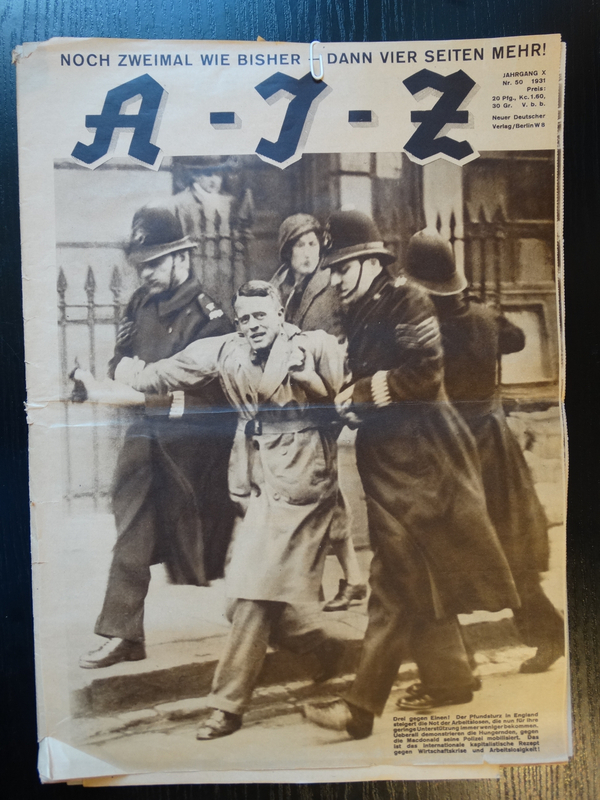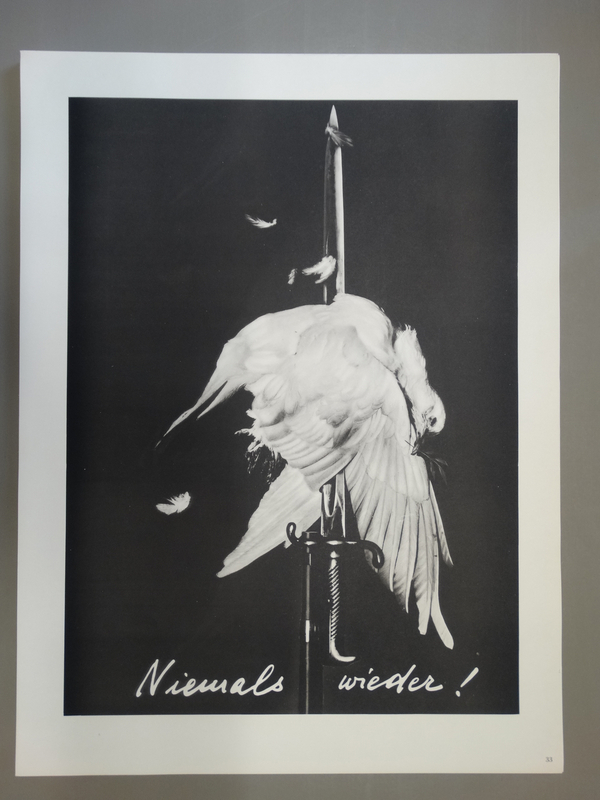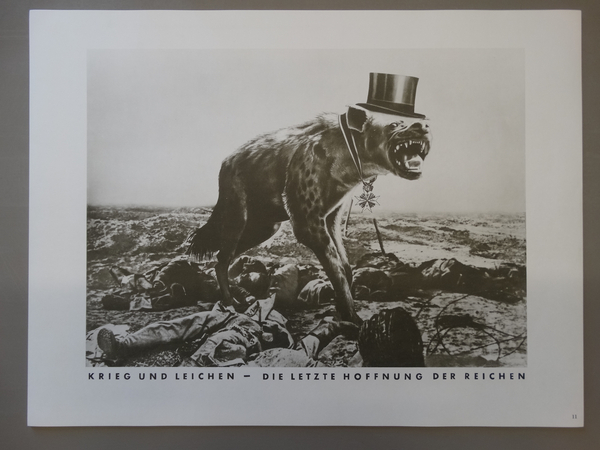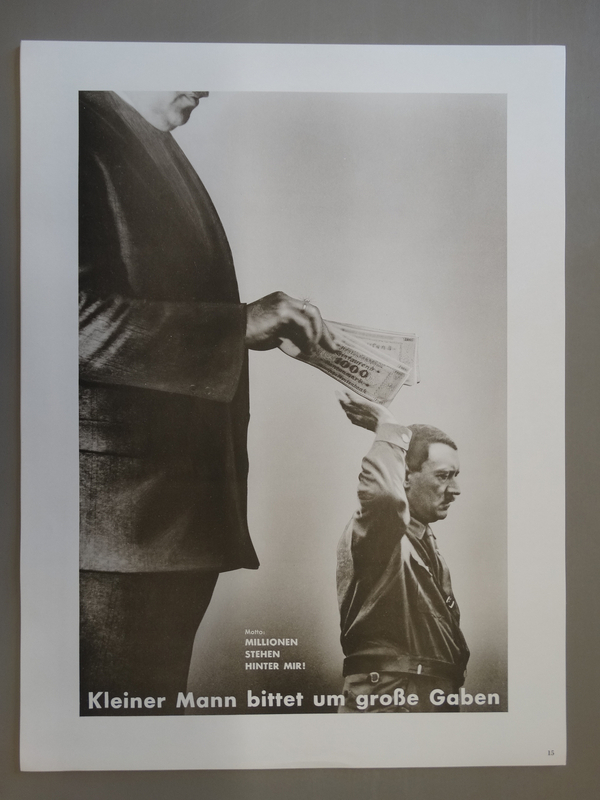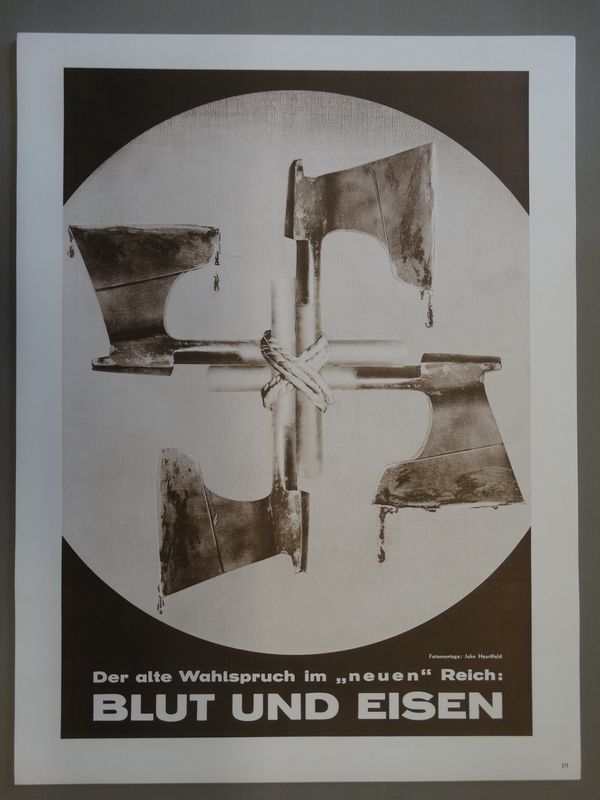Audio guide for reading
Audio guide for reading The „Arbeiter-Illustrierte-Zeitung“ (The workers Pictorial Newspaper) appeared in Willi Münzenberg’s communist Media-Empire. The magazine was an alternative draft to middle class pictorial newspapers and grew rapidly during the 1920’s. The socialist pictorial newspaper appeared with a biweekly schedule and soon sold 180.000 copies.
Most of the pictures were worker photography. Best remembered are the photomontages by graphic designer John Heartfield, who in 1929 together with Tucholsky produced the work “Deutschland, Deutschland über alles” (Germany, Germany above all).
The publisher Willi Münzenberg aspired after a connection of the communist movement with the most significant minds of the republic. Current coverage appeared together with narratives and poems, for example by Erich Kästner, Maxim Gorki or Theobald Tiger.
Tucholsky, who used to be a member of the socialist party, temporary drew nearer to the communist party in the late 20s, but he set value on not being a communist himself and kept his distance to the party functionaries. He wrote in 1931:
“You can’t believe what this country looks like from the outside: a bunch of neurasthenic maniacs, the whole lot, every single one, are wrong. Only misunderstandings and talking at cross-purposes…no, my friend, I’m not in the world for that.”
Starting in 1926 the newspaper appeared as a weekly. Its circle of influence was considerably bigger than its circulation of a little over half a million copies. Subscribers and others that bought the magazine passed it on to other interested people.
After Hitler took over power in 1933 the AIZ went into exile. It could survive in Prague with the chief editor Franz Carl Weiskopf until 1938.
![[Translate to Englisch:] Kurt Tucholsky Literaturmuseum [Translate to Englisch:] Kurt Tucholsky Literaturmuseum](/fileadmin/_processed_/4/c/csm_logo-ktm_adccaface9.png)
